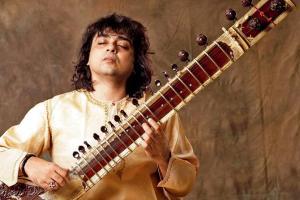With music lessons taking the virtual route, we find out what this means for teachers who are conducting classes online

Niladri Kumar

Taufiq Qureshi
"What happens in a physical class is that people take notes so that they remember the lessons. But with videos, they can actually see the physicality involved and practise the same at their own convenience, in the comfort of their homes. It makes life easier, and that's a remarkable aspect of online lessons," he says, adding that people like percussionist Taufiq Qureshi and vocalist Saylee Talwalkar are also teaching students digitally at TFR.
Then there's the fact that virtual classes have a pan-India reach, as opposed to a class at the foundation's Bandra centre that's limited to just Mumbai locals. And even for Mumbaikars, it might not make sense for a person living in Borivali to travel three hours both ways to Bandra for a class that is only one-hour long, especially if he or she has reached an advanced stage of learning. But does this mean that online music courses will become more de rigueur post the lockdown? Kumar thinks so. People will get more used to this medium over the next six to eight weeks. "They will even start liking it," he tells us. So given a new world, there will also be a new order, though that doesn't mean that the Gurumukhi tradition will completely be a thing of the past, since — as the sitar maestro says — its merits are set in stone.
Email thefoundationroom.in
Catch up on all the latest Mumbai news, crime news, current affairs, and a complete guide from food to things to do and events across Mumbai. Also download the new mid-day Android and iOS apps to get latest updates.
Mid-Day is now on Telegram. Click here to join our channel (@middayinfomedialtd) and stay updated with the latest news
 Subscribe today by clicking the link and stay updated with the latest news!" Click here!
Subscribe today by clicking the link and stay updated with the latest news!" Click here!







_d.png)



